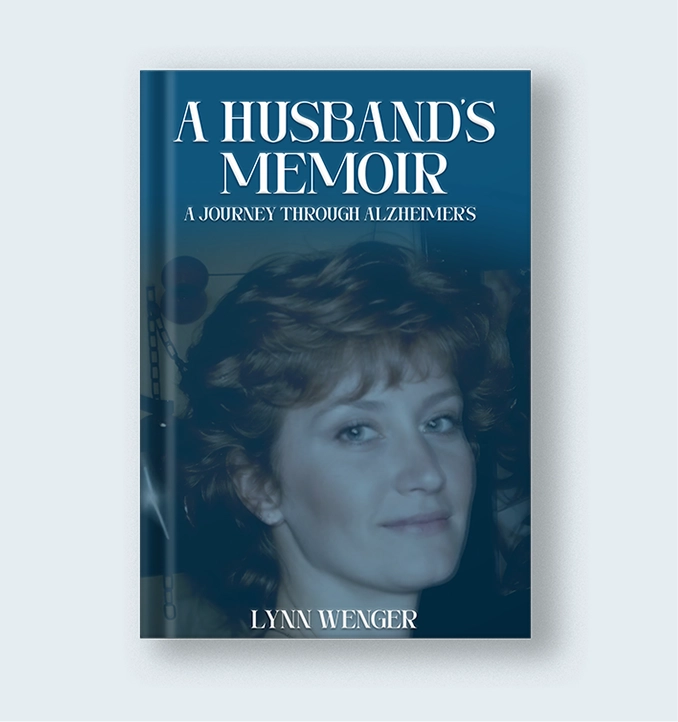Lynn Wenger Alzheimer’s Journey and the Strength of Caregiving

When we talk about life’s toughest battles, Alzheimer’s disease often tops the list. It’s not just about forgetting names or misplacing things—it slowly rewrites the story of a person’s life. In this article, we’ll dive into Lynn Wenger Alzheimer’s journey, a powerful story that reflects both the struggles of living with the condition and the unmatched strength of caregiving. Think of it like navigating a storm at sea—where love, patience, and resilience become the anchor.
Before we begin, here’s a quick roadmap of what we’ll cover.
1. Understanding Alzheimer’s: More Than Memory Loss
Alzheimer’s is often mistaken as “just memory loss.” But in reality, it’s a disease that slowly erodes a person’s ability to think, function, and live independently. Imagine having a book where each page disappears one by one—you can still see the cover, but the story inside fades. That’s what Alzheimer’s feels like for patients and their loved ones.
2. Who is Lynn Wenger?
Lynn Wenger was not just another person diagnosed with Alzheimer’s; she was a vibrant individual whose story resonated with many. Her life, filled with love, work, friendships, and dreams, took a turn when Alzheimer’s became part of her reality.
3. The Beginning of Lynn Wenger Alzheimer’s Journey
Every journey has a starting point. For Lynn, it began with small moments—misplacing things more often, forgetting conversations, and a growing sense of confusion. What seemed like ordinary forgetfulness turned into something deeper and more worrying.
4. Early Signs and the Shock of Diagnosis
When the doctor confirmed Alzheimer’s, it was like a thunderbolt for Lynn and her family. Accepting the diagnosis wasn’t easy. It’s one thing to know about Alzheimer’s in theory and quite another to face it personally.
5. Emotional Impact on Family and Loved Ones
Alzheimer’s doesn’t just affect the patient—it ripples through the entire family. For Lynn’s loved ones, it meant grieving a little each day, even while she was still physically present. This is often called “the long goodbye,” and it takes a huge emotional toll.
6. The Role of Caregiving: More Than Just Assistance
Caregiving is not only about helping with daily tasks—it’s about preserving dignity, showing patience, and offering unconditional love. Caregivers like Lynn’s family stepped into a role that demanded strength, sacrifice, and endless compassion.
7. Daily Challenges in Alzheimer’s Care
From repeated questions to sudden mood swings, caregiving came with hurdles. Lynn sometimes didn’t recognize familiar faces or got frustrated with simple routines. These moments tested the patience of her caregivers but also built resilience in unexpected ways.
8. Finding Strength in Love and Patience
Caregiving for Lynn was like holding a fragile glass vase—requiring gentleness and care at every step. Love became the force that allowed her caregivers to wake up each morning and keep going, no matter how hard the previous day had been.
9. The Importance of Support Systems
No caregiver can—or should—walk this path alone. For Lynn’s family, support came from friends, extended relatives, and Alzheimer’s support groups. Sharing experiences with others in similar situations brought comfort and strength.
10. Community and Medical Support Along the Way
Professional help—from doctors, nurses, and therapists—played a critical role. Community programs offered memory activities and safe environments that helped Lynn engage and connect for as long as possible.
11. Lessons from Lynn Wenger Alzheimer’s Journey
One powerful lesson was this: life is still worth living, even with Alzheimer’s. Lynn’s journey showed that small joys—like music, laughter, or holding hands—carry immense value, even when memories fade.
12. Coping Mechanisms for Families and Caregivers
Families leaned on journaling, counseling, and mindfulness practices to cope. Some found comfort in prayer, others in art or simply taking time to breathe. These tools became vital in navigating the emotional storm.
13. Shaping Awareness and Breaking Stigma
Lynn’s story contributed to a bigger mission—raising awareness about Alzheimer’s. Too often, people hide diagnoses out of shame or fear. But sharing her journey helped break the stigma and encourage more open conversations.
14. How Caregiving Transforms Relationships
Caregiving deepened bonds. Though Alzheimer’s took away some connections, it created new ones too. For example, family members learned to value non-verbal communication—like a smile or a gentle touch—as deeply as words.
15. Hope, Resilience, and Moving Forward
While Alzheimer’s doesn’t have a cure yet, Lynn’s journey reflects hope. It’s about finding meaning in the present, cherishing small victories, and honoring the strength of both patients and caregivers.
Conclusion
Lynn Wenger Alzheimer’s journey is more than a story of struggle—it’s a testament to love, patience, and resilience. Caregiving, while difficult, becomes an act of profound strength and devotion. Her story reminds us that even in the hardest storms, the human spirit can shine through like a lighthouse guiding the way.
FAQs
1. What is Alzheimer’s disease?
Alzheimer’s is a progressive brain disorder that affects memory, thinking, and behavior, eventually interfering with daily life.
2. How did Alzheimer’s impact Lynn Wenger’s life?
It affected her memory, independence, and daily routines, but her journey also highlighted the importance of love and caregiving.
3. What role did caregivers play in Lynn Wenger Alzheimer’s journey?
They provided physical, emotional, and mental support, ensuring dignity and comfort for Lynn throughout her condition.
4. Why is caregiving considered a strength?
Because it demands patience, sacrifice, and resilience, showing the power of love even in the hardest circumstances.
5. What lessons can we learn from Lynn Wenger Alzheimer’s journey?
That life, even with challenges, can hold beauty, meaning, and hope through small joys and acts of love.


